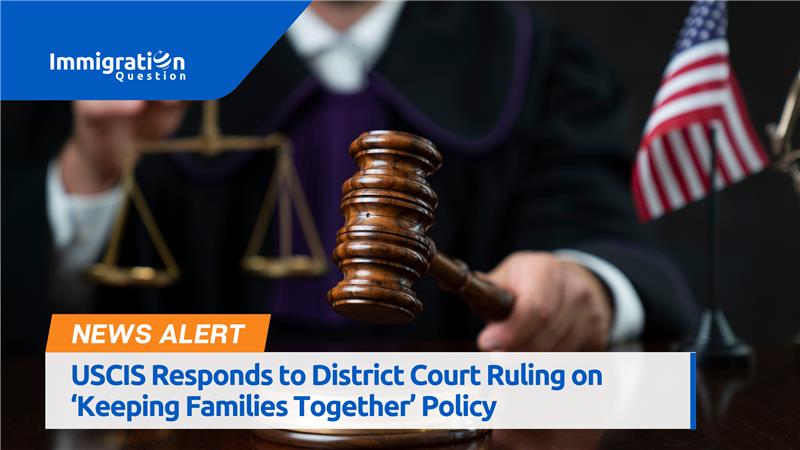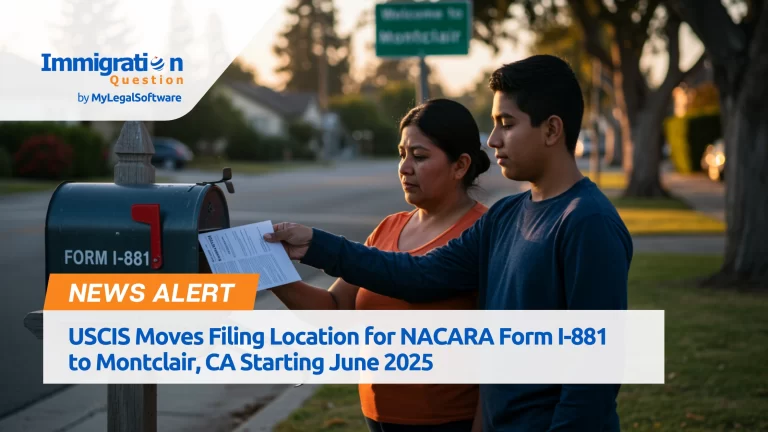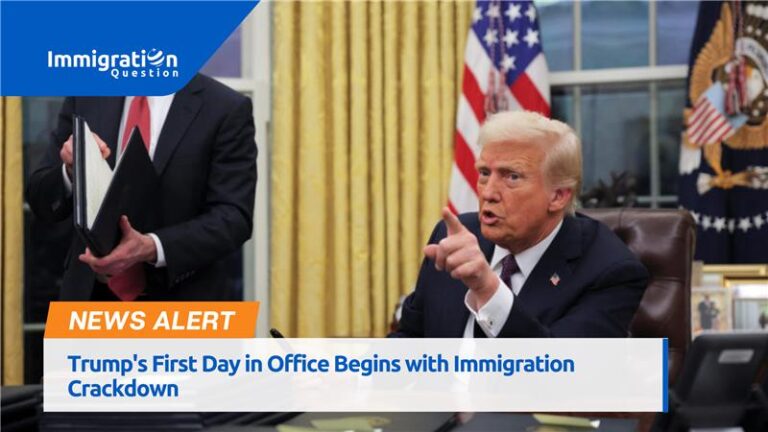In a critical decision impacting thousands of mixed-status families, a federal court recently ruled against the Biden administration’s “Keeping Families Together” (KFT) program. This initiative, aimed at providing a legal pathway for undocumented spouses and stepchildren of U.S. citizens, has been declared invalid, halting all current and future applications. As families grapple with the consequences, the ruling highlights a contentious legal battle over immigration policy and executive authority in the United States.
The United States Citizenship and Immigration Services (USCIS) has released an official response following a recent District Court ruling that has significantly impacted the “Keeping Families Together” (KFT) program.
Background of the Case – Keeping Families Together Policy
The Keeping Families Together policy, introduced by the Department of Homeland Security (DHS) in June 2024, sought to offer parole in place (PIP) for certain undocumented spouses and stepchildren of U.S. citizens. It aimed to prevent family separations by providing temporary legal relief while maintaining national security protocols. The program was officially launched in August 2024, with applications being accepted shortly after that. It aimed to streamline immigration processes for about 500,000 individuals, enabling them to stay united while pursuing legal status.
However, shortly after its inception, the program faced legal challenges. Sixteen Republican-led states, spearheaded by Texas, filed a lawsuit claiming the program overstepped statutory authority. The case quickly escalated, culminating in a District Court ruling in November 2024, deeming the policy unlawful. The court argued that the DHS lacked the authority to grant such broad-based relief under current immigration laws.
Court’s Judgment – Keeping Families Together
On November 7, 2024, a Texas federal court vacated the KFT program, stating that it was inconsistent with statutory limits on parole authority. The court upheld the plaintiffs’ argument that DHS’s policy implementation exceeded its legislative mandate. As a result, the program, which had already been placed under a temporary administrative stay in August, was permanently halted.
This judgment has far-reaching implications, as it disrupts the lives of thousands of families who were counting on the program for relief. The court has given USCIS a timeline for adjusting its procedures in accordance with the ruling.
USCIS Adjustments to Reflect the Ruling Keeping Families Together
In response to the court’s decision, USCIS announced immediate updates to its handling of KFT applications:
- Pending Form I-131F applications will not be adjudicated and intake of new Form I-131F applications will cease;
- Anyone with a future Application Support Center appointment in support of a filed Form 1-131F should consider that appointment canceled immediately;
- Anyone who appears for such an appointment would be turned away;
- External engagements on the KFT parole process are cancelled.
What’s Next? Keeping Families Together
Advocates and immigration experts continue to debate the broader implications of this decision. Proponents of the KFT program argue that it was a necessary step toward humane immigration policies, while opponents believe it bypassed legislative oversight. The ruling adds complexity to the immigration landscape, particularly for family-based immigration pathways.
While the legal battle over the scope of DHS’s authority continues, affected families remain in limbo. Immigration advocates are urging Congress to consider legislative solutions to address the systemic challenges highlighted by this case.
To stay updated and informed, watch our news section or drop your immigration queries for professional attorneys to reply to on Immigration Question










